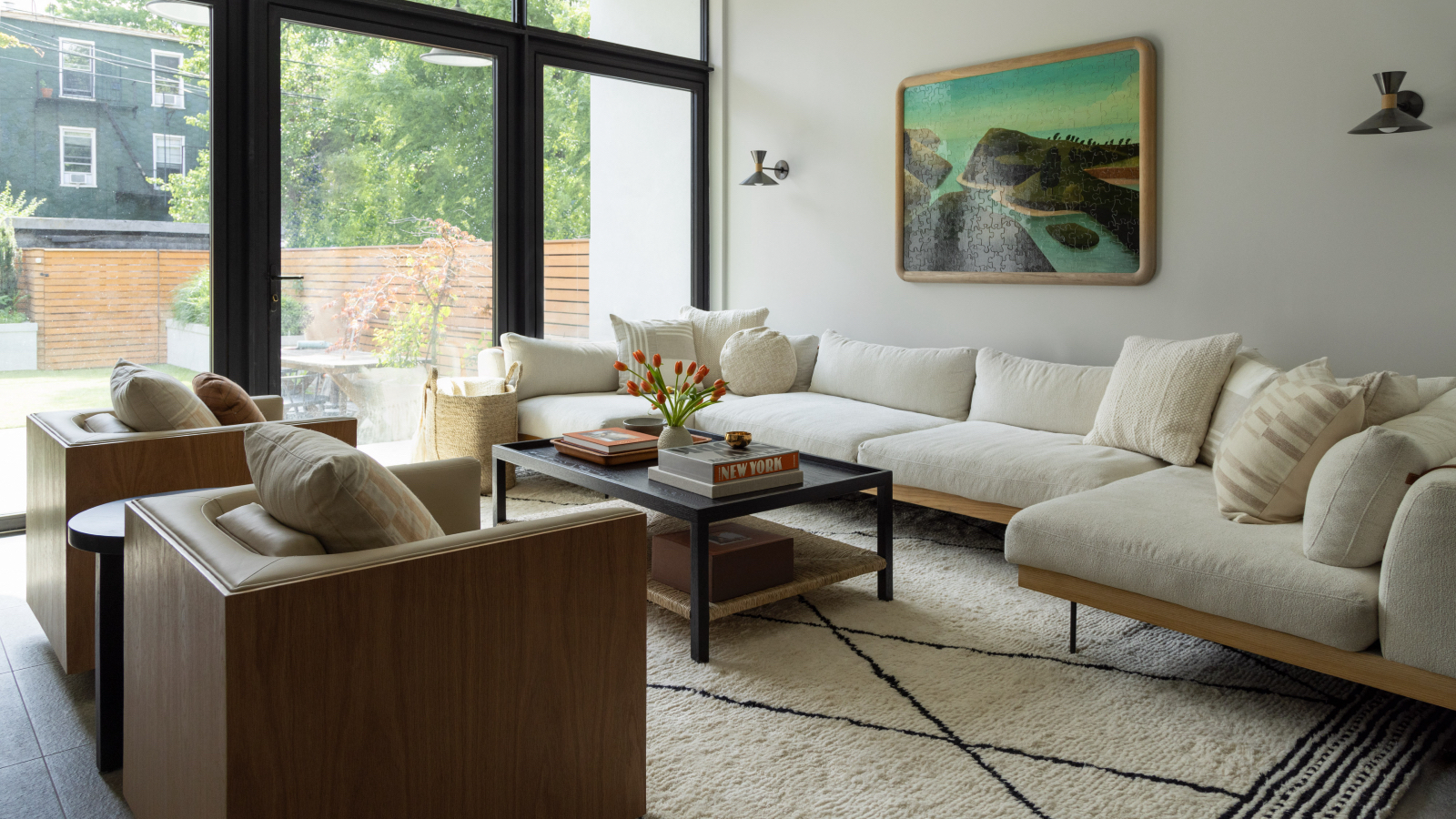
The sofa is one of the most important pieces of furniture in the home, so where you position the crucial item is fundamental to the function of your living room. As well as the style of the sofa itself – silhouette, size, finish, fabric – you need to work out the best way to arrange them so that your room lives up to its full potential. Mastering the art of good furniture placement will ensure that your home is a happier place for you and your family, no matter the size or layout.
The arrangement of these large pieces of furniture in a sitting room takes consideration, in order for you to get the best layout for your living room sofa, and your enjoyment of it. With the myriad styles of sofas available from sectional to Chesterfield, and everything in-between, we have spoken to the experts to find out the best layout for a sitting room and how to avoid arranging mistakes along the way.
Here we've asked the experts to share the biggest sofa arranging mistake, along with advice on how to arrange living room furniture in your home using the principles of interior designer-approved home decor ideas as guidance. If in doubt, our selection of the best indoor furniture stores will help you to source the most desired designs.
Simple ideas to help you arrange your sofa at home
Interior designers share their tips and tricks to avoid making mistakes when deciding on your sofa arrangements in the living room.
1. Not measuring the couch
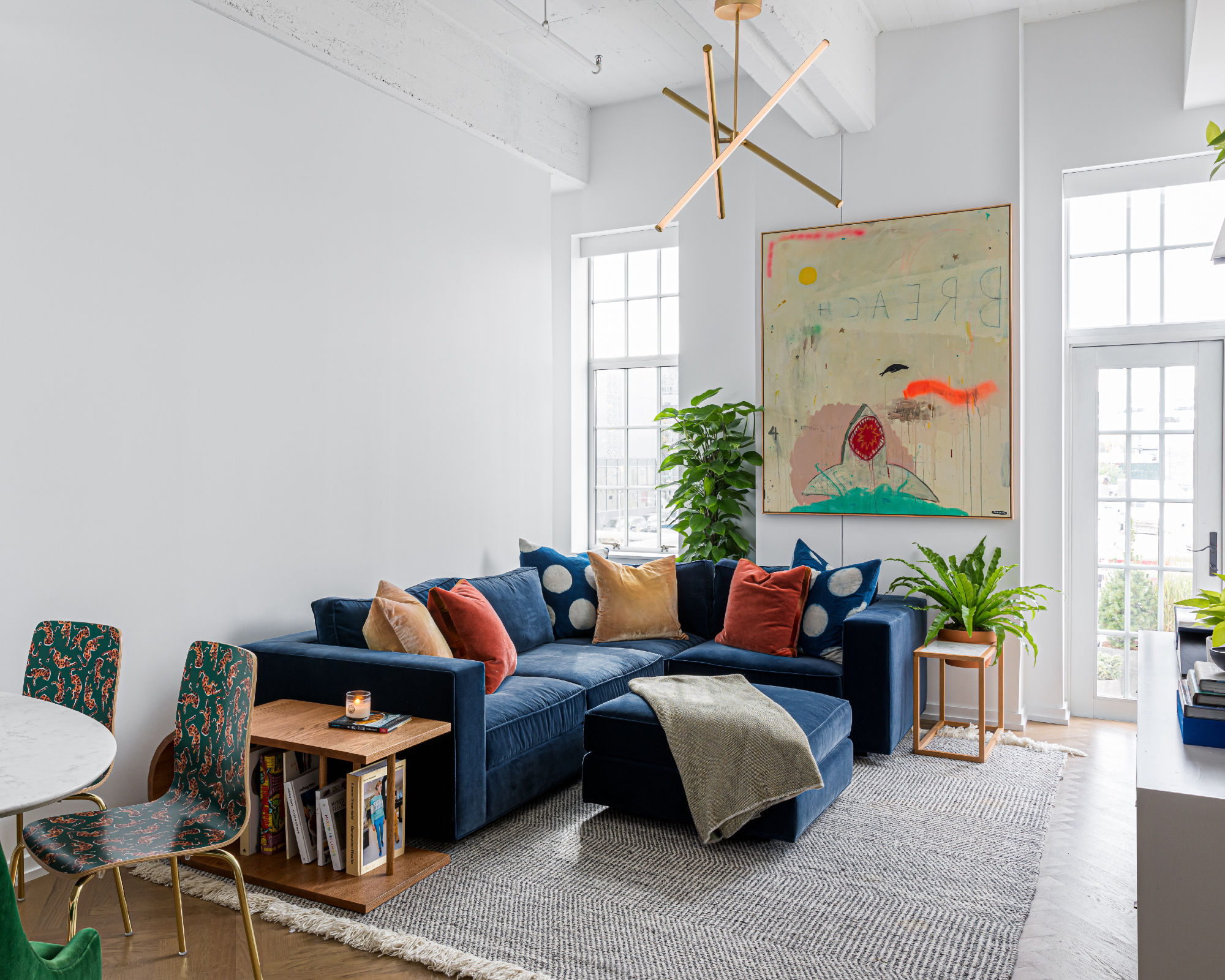
One of the most obvious, but most common, mistakes we make when arranging a sofa is not taking the dimensions and scale of the sofa and the sitting room into account. Measurement is everything at this stage, choosing a sofa that is too small, will make the room feel unanchored and will not provide enough seating, but selecting a sofa that is too big will fill the space and make the room feel claustrophobic.
‘The most common mistake we see with sofas or sectionals is that homeowners tend to purchase the largest size they can possibly fit in the room. Says Rozit Arditi, principal designer of Arditi Design. She goes on: ‘While it is technically a nice idea to have plenty of seating, one must remember that the room should not consist of only a sofa. Unless it is a design choice, oversize seating will block the flow of the room and doesn't leave space for other essentials of a living room.’
Eva Bradley, principal at Studio Heimat, adds: ‘We want people to be comfortable when sitting on a sofa, so a rule of thumb is between 28-36 inches per person when you’re looking at the overall length of a sofa. Of course, this doesn’t account for the arm widths, so you must adjust accordingly, but that is a quick rule of thumb.’
2. Not considering its usage
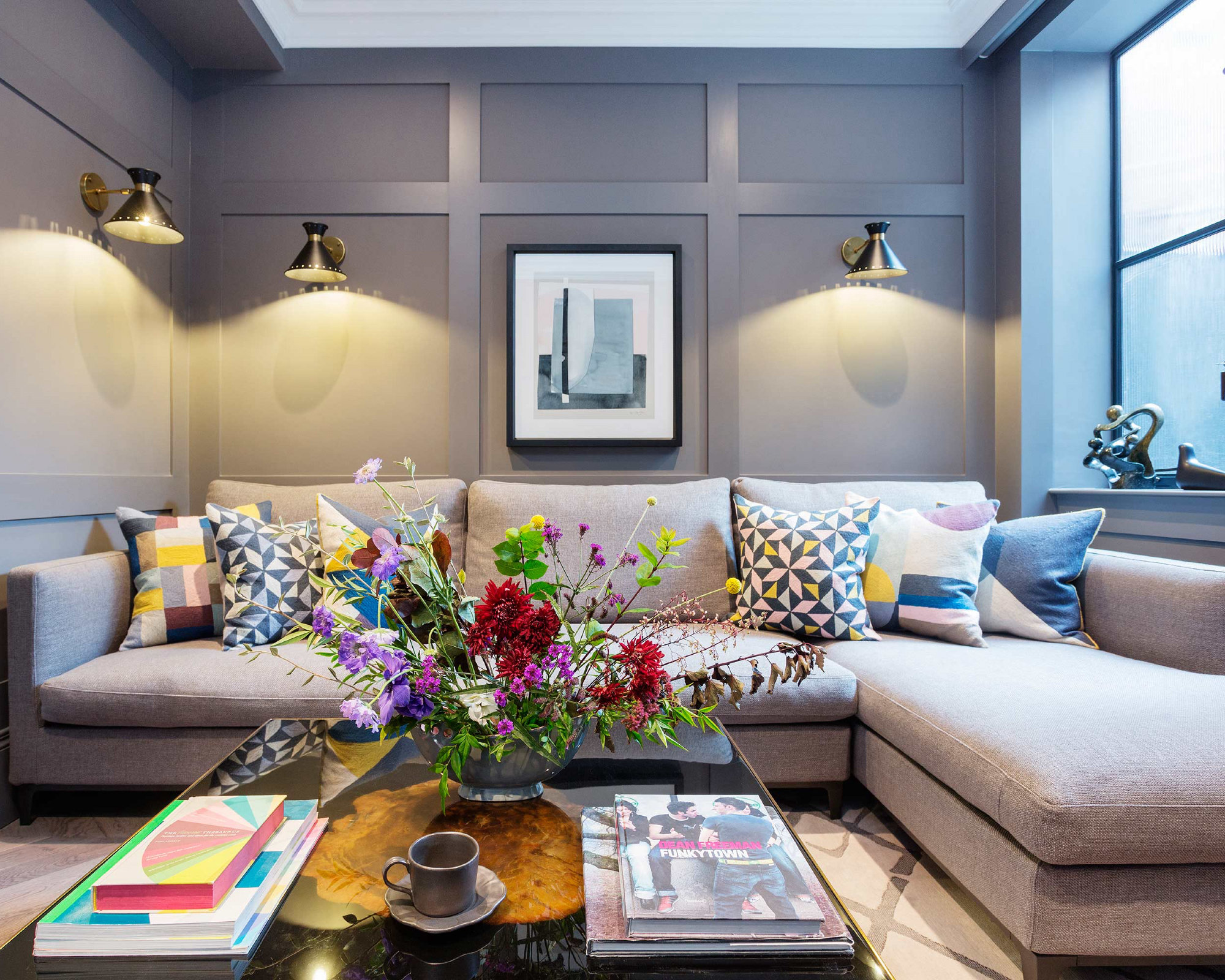
Our sitting rooms, and the living room seating therein, are crucial environments to relax in after a long day’s work, but they can also be places to entertain and impress our friends and family. Choosing which type of sofa and how to arrange it for both purposes, or, just one of them, will help in the perfect arrangement of your couch.
Caroline Milns at Zulufish explains: ‘It’s important to consider how you will use the room, for example, if it is more snug, then the obvious direction is for the sofa to face the television or media wall as this is the focus of the room. Opting for an oversized sofa would be a good option in this type of space as it will provide a very comfortable spot for all the family to gather. If it is more of a formal living room, then positioning for two sofas, which face each other is a brilliant way of encouraging conversation, whilst also creating a comfortable space to enjoy with friends after dinner.’
Eva Bradley, principal at Studio Heimat, agrees, ‘We love the idea of a whole family getting cozy on a sofa, so we tend to lean towards sectionals for family and media rooms to accommodate everyone and pets.’
3. Don’t overlook the focal point
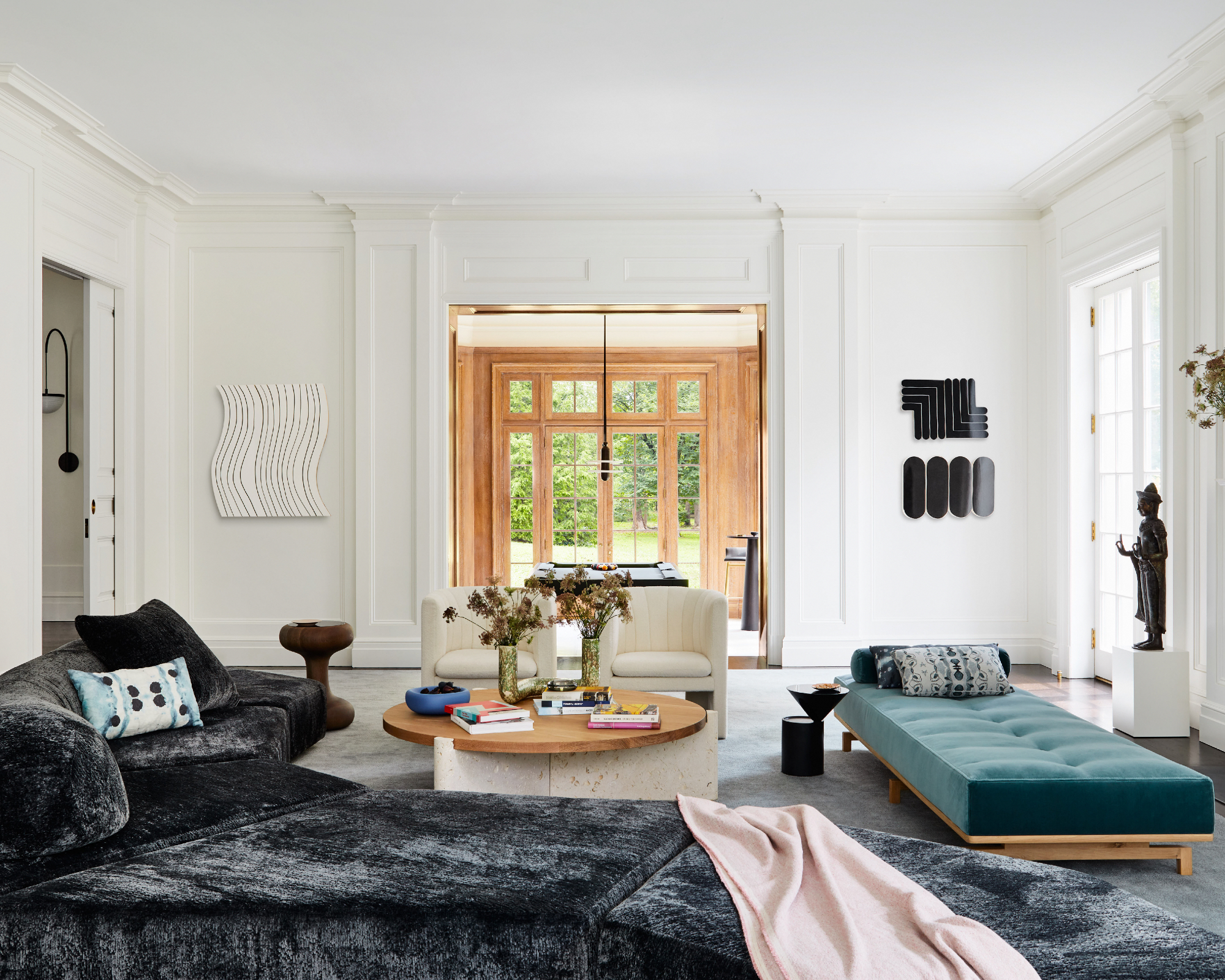
Consider what part of the sitting room is your focal point, before you arrange the couch, the focal point, whether it be a living room TV, a window, a doorway, or another couch will be key to the positioning.
A common mistake is to arrange the sofa so that it does not face the focal point so that it is awkward to relax.
‘One of the fundamental rules of thumb is to place the sofa facing the room's focal point, which could be a fireplace, a television, or a beautiful view. This arrangement helps establish a natural flow and creates a sense of balance within the space,’ explains Liz Beal at Goddard Littlefair.
Alicia Cheung, principal at Studio Heimat agrees: ‘You want to consider the balance of the room, and typically we would place a sofa opposite the focal point, be it the view, the TV, or the living room fireplace.’
4. Not thinking about size or position

If you have a small living room, then the couch should be arranged so that it is flat against the wall, you can, says Alicia Cheung, principal at Studio Heimat, make the sofa and wall space behind extra special by adding details such as, ‘millwork or bookshelves, a salon wall, or adding sconces to make the wall more of a feature.’
But if you have a lot of space then proportion is everything and Eva Bradley, principal at Studio Heimat, recommends you get multiple sofas and arrange them symmetrically.
‘They should face each other, centered on the focal point, be it a fireplace or art piece. Find out if the sofa comes in different depths, you may want to get the deepest version of that sofa, so that the sofa doesn't feel dwarfed by the volume of the room, and looks more inviting.’
‘If you have the luxury of space, try floating the sofa away from the wall, allowing it to act as a divider between different areas within the room. This arrangement works to create distinct zones, which helps to break up larger spaces and gives the opportunity to make more nooks and areas to relax, read or socialize,’ says Liz Beal at Goddard Littlefair
5. Forgetting to create enough space for conversation
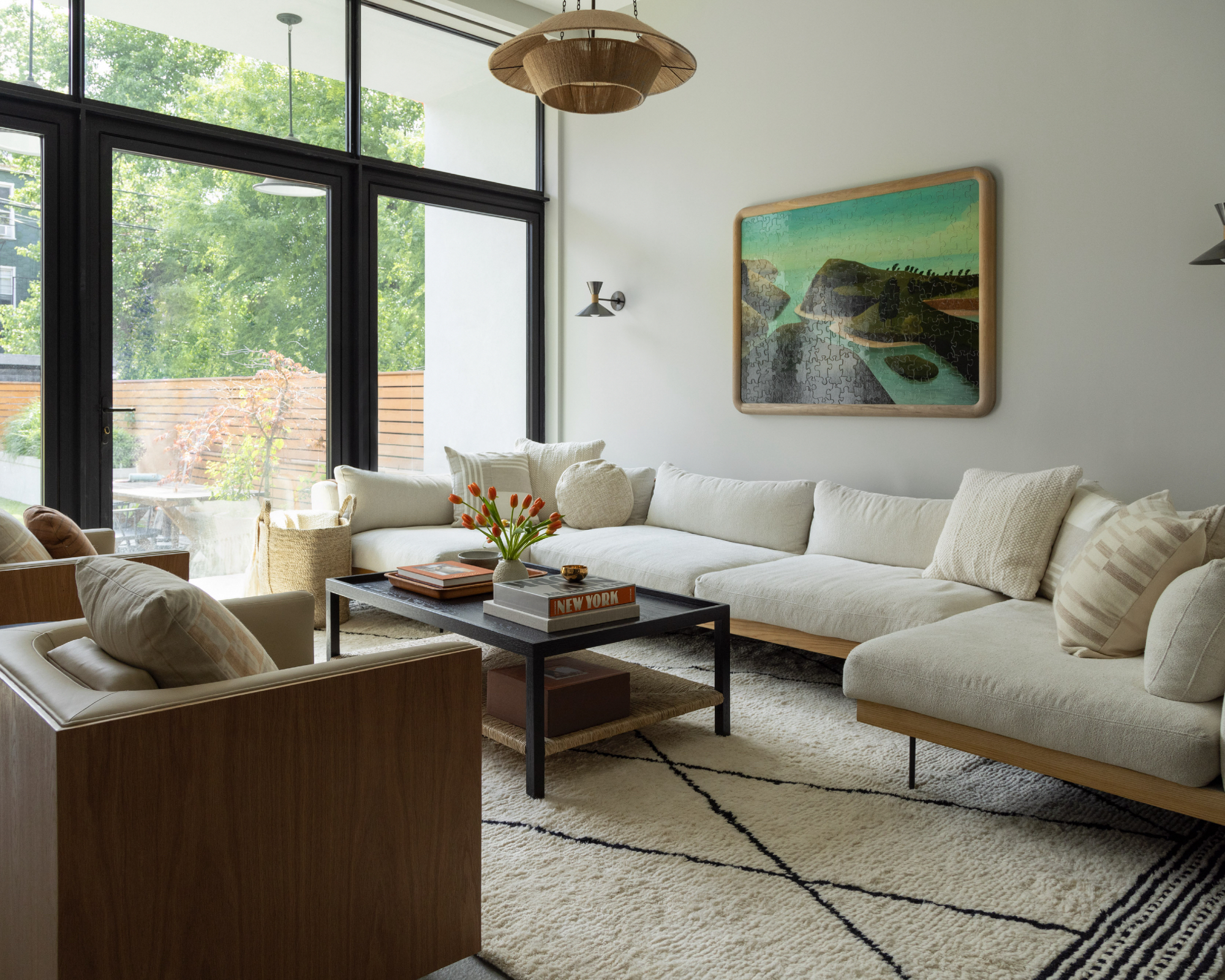
Flow is your new buzzword, ensuring you have flow is extremely important and arrangement is key to that.
Hyphen designer, Eliza McNabb, tells us to, ‘consider the path of travel for people walking in and out of the room. If that path sits between the sofa and the TV that might not be your best set-up. Instead, consider positioning the back of the sofa towards the walkway as a natural divider between the circulation space and the seating area.’
Space around the sofa and the room is important and must not be overlooked.
Keren Richter, principal at White Arrow, uses measuring standards when arranging a sofa and other furniture in a sitting room, ‘we want the coffee table height and its spacing to be in a comfortable relationship to the sofa’s seat height and placement. We have found coffee tables about 2/3 the width of a sofa often looks best, but rules are meant for breaking. We want our clients to be able to sit down for a drink and kick up their feet comfortably, and if there is tv watching, they are positioned close enough to the tv so that they can see without craning their necks.’
Moving around a room with ease without bumping into other people, furniture or objects is fundamental.
6. Overlooking separate seating areas
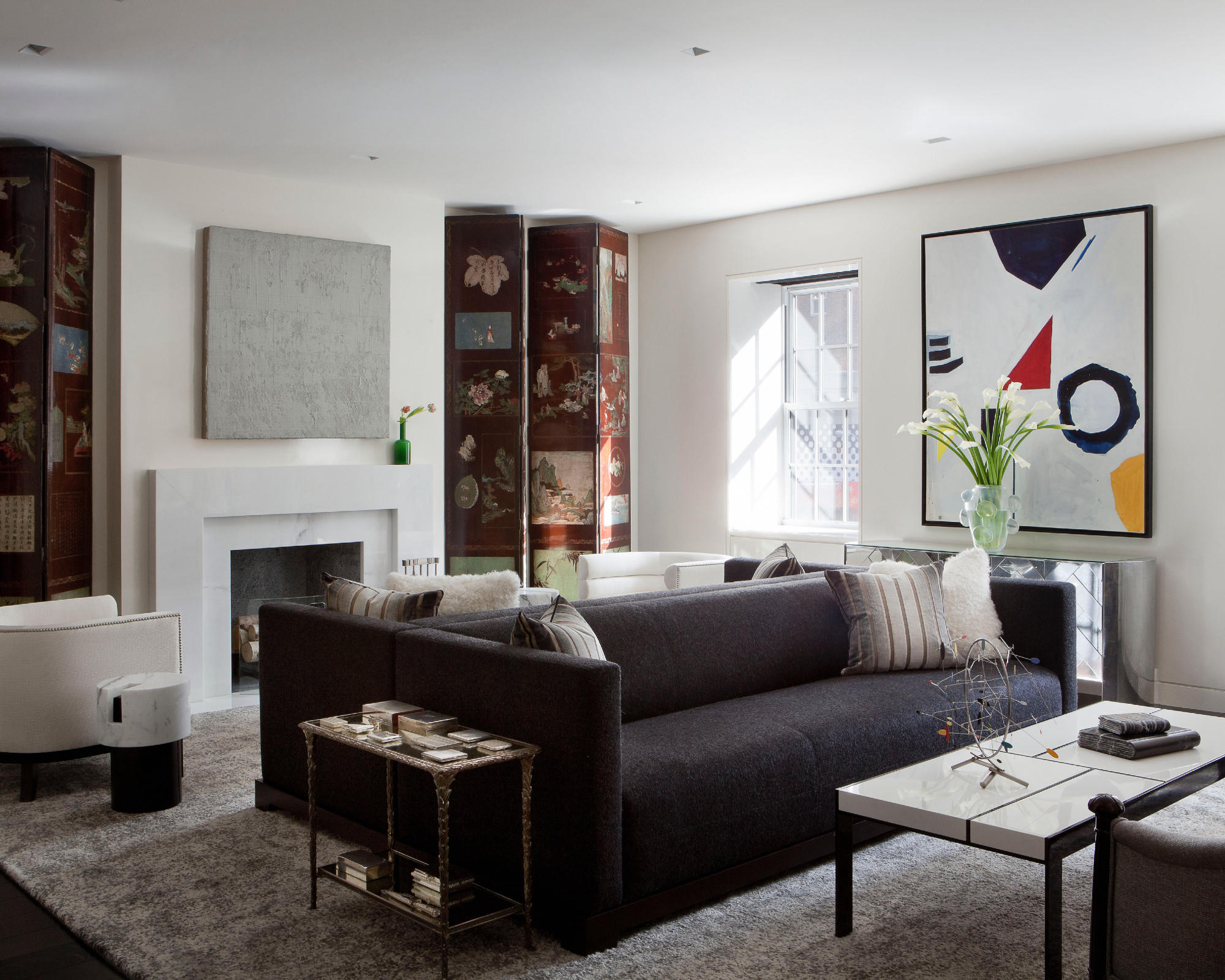
With a large living room, sofas are extremely useful to create separate seating areas. ‘Sofas are great tools to divide a large living room because of their size. A sofa floating in the middle of the room, anchored on an area rug, feels grounded. They can nicely separate a work-from-home nook or dining space from a living space,’ says Elizabeth McNabb at Hypen.
Martin Horner and Shea Soucie, principals at Soucie Horner Interiors, ‘For the optimal sofa choice for social gatherings consider arranging sofas back-to-back or choosing a four-sided sofa. These configurations enable the creation of diverse environments for hosting.’
Multiple seating areas make a space feel generous, says Lucy Harris of Lucy Harris Studio, ‘In a large room, I like to have several seating areas and generally like to have only one sofa or sectional in the main seating area. I like one of the seating areas to feel grander than the other so your eye has a place to rest. In a secondary seating area, I would use chairs and a bench, not a sofa, for seating.”
7. Throw out the rule book
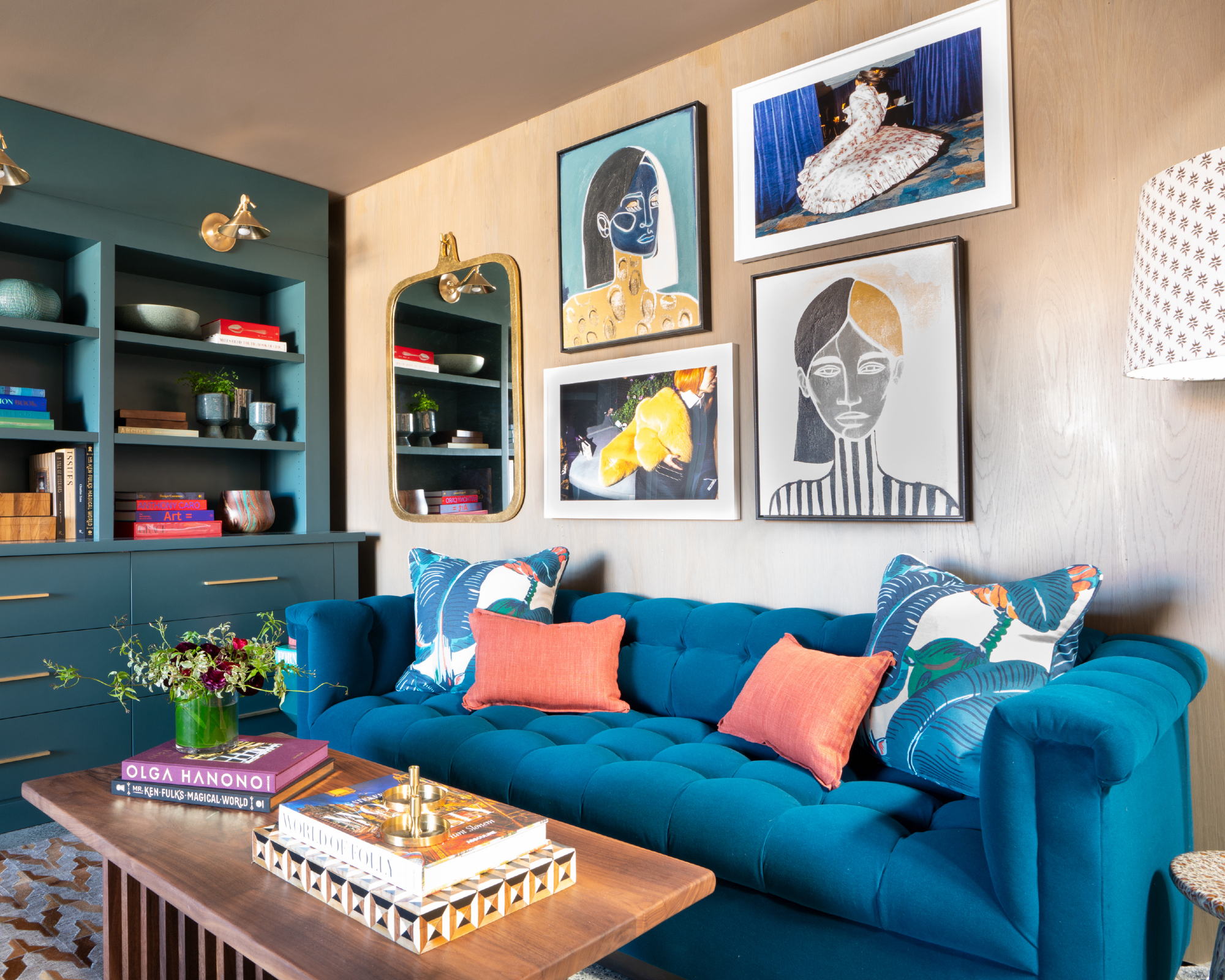
‘Successful people are the ones who are breaking the rules,’ says the author Seth Godin, so if you fall in love with a vintage couch take it home with you and make it work in your arrangement.
Nancy Evars, at Evars Collective, believes there are no golden rules when it comes to designing. She says, ‘There are so many factors to weigh specific to each room's design. For instance, if the room is a great room, you could either float one large seating area or create smaller, separate furniture groupings depending on how the room will be used and how “filled up” you want the space to feel.'
‘Oftentimes, people think small room, small furniture. I tend to go larger with the sofa even in small spaces so you can max out seating and a larger sofa makes a small room feel bigger.’
FAQs
How to arrange a sofa perfectly in a sitting room?
The clarity found when you have laid out your sofa properly in your living room, will provide you with a sense of satisfaction, allowing you to enjoy your investment into this piece of furniture completely.
Size is one of the key mistakes made when purchasing your sofa, go as big as you dare, but do not engulf the space, unless the room is a snug and the only furniture you desire is a sofa.
Ensure there is enough space for the entire family, that flow is considered between entrances and exits, side tables, and other furniture.
The focal point is key to design the best layout. Use your sofa to create a divider or place another sofa opposite to encourage conversation.
The coffee table should complement but not overwhelm the sofa, in size or material and of course, as Nancy Evars, at Evars Collective, says, ‘a sofa should create a warm and inviting space.’







